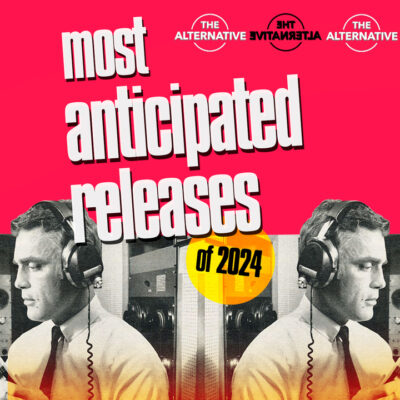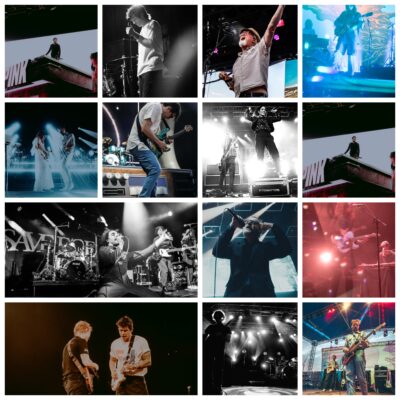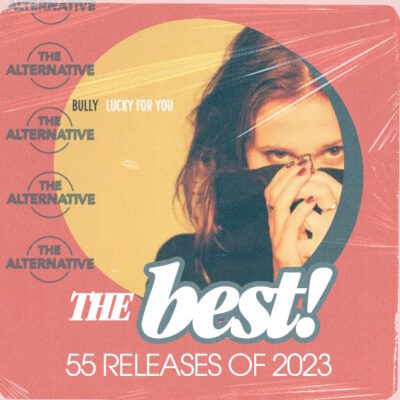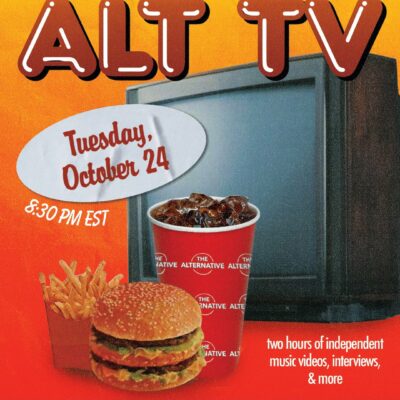Album Premiere + Interview: Alexei Shishkin — ‘S/T’
Posted: by The Editor
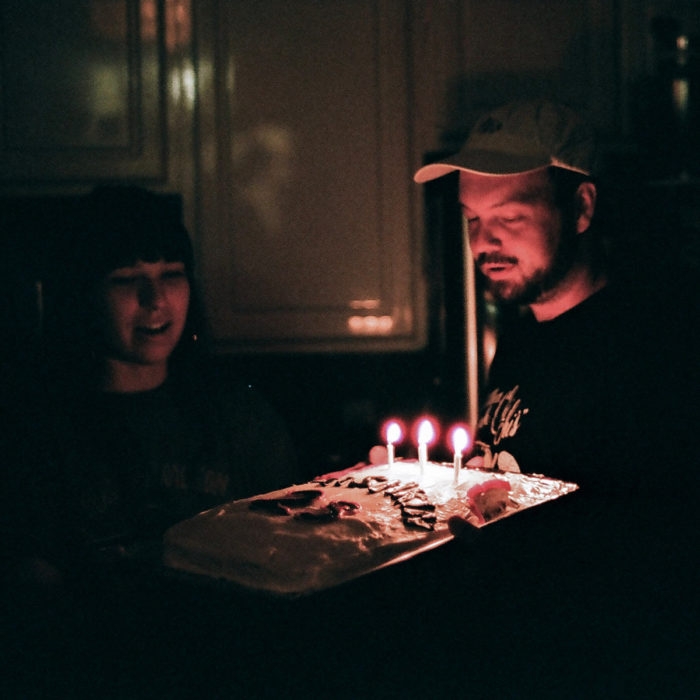
The cover to Alexei Shishkin’s new self-titled LP features him blowing out the candles on a birthday cake (coincidentally enough, Shishkin’s last LP was titled happy bday). When I talked to him over the phone, Shishkin described how his friend had planned a surprise party for him, but he was hesitant to go over there at first, completely oblivious that all of his friends waiting there for him to arrive, because he wanted to celebrate his birthday on his own terms. That was an incredibly special moment for him, and it also brings up something important to remember when listening to Shishkin’s music—that it’s made completely on his own terms.
Shishkin’s particular brand of bedroom-pop feels very organic and in the moment, if his music was labored over too much it would lose some of the magic and spontaneity that makes it so exciting in the first place. In the case of S/T, less is definitely more, by keeping his music mostly unadorned Shishkin gives his ideas room to breathe. Take “Clean Thru,” the album’s infectious centerpiece, for instance, where straightforward jangly guitar lines, a wordless chorus, and computer-generated drums make for two minutes of pop bliss.
There’s certainly no shortage of bedroom pop being released in 2019, but one thing that helps set Shishkin apart from the rest of the pack is his guitar playing, which takes hints from both longue music and bossa nova to help create a style all his own. Tracks like “Turn Way Up” and “Where Do We Go” pair jazzy guitar noodling with Shishkin’s conversational style vocal delivery, which brings an intimacy and warmth to the entire album. S/T is the prolific artists most realized work to date, gleefully wearing its lo-fi ambitions on its sleeve while spotlighting Shishkin’s off-the-cuff style of songwriting.
Stream S/T below, ahead of its release this Friday via Forged Artifacts, and then check out my interview with Shishkin about the new album, working with Forged Artifacts, how his background in videos has influenced his music, and more.
The Alternative: When did you first start writing songs?
Alexei Shishkin: The first thing I ever actually started making ever was beats, like I would sample shit. I was using a program called fruity loops and what I would do is chop samples out of shit. But the thing is, my knowledge of classic stuff and soul shit wasn’t up to par. So like, the most sophisticated stuff I was chopping up was the Crusaders and stuff like that, which, you know, everyone samples them basically. And then what I would do is, eventually, I started just kind of playing like little baby piano melodies over it. And then I started playing with putting guitar melodies over it. And this is before I knew how to play any instruments, I kind of had friends instruments lying around my place. And then I realized what I was doing was I was sampling myself playing stuff. And then I was like, “Well, fuck, man, if I’m just sampling myself playing, why don’t I just try to play whole songs and actually make songs?”
How did you begin working with Forged Artifacts?
Yeah, that was a bit of a crazy connection. So it was basically through Ryan Pollie. I had a friend from high school and then he went to Chicago for theatre school, and I went to LA just to work. And then he was acting in Chicago for a while and eventually moved to LA to start working there. And he moved to LA just as I moved to Portland. One time, I came back from Portland to LA just to visit him. And he had a roommate, which was Ryan Pollie, and Tyler was like “Yo, Ryan makes music too, you should talk to him” and this is when I just started recording stuff. So I came down and I played him these six demos. And he was like, “These are ready to put out, I’m going to get you in touch with my friend Matt he has a label called Forged Artifacts” and Matt listened to them and liked them. So those six tracks I actually shelved, I kind of bait and switched him without meaning to, I ended up giving him a new batch of songs and said how about you put this out instead. Those six tracks eventually ended up being on the split I put out with Tomemitsu a couple years ago.
This is your sixth release with Forged Artifacts, what made you decide to come out with a self-titled album after all these years?
I guess because I hadn’t done it yet. I had always meant for my first album to be self-titled, but I put The Dog Tape on the spine of it and then it just started getting referred to as that.
Was it important to you for your music to sound organic?
I think it just kind of plays out that way, because it honestly is just like a musical manifestation of my lack of professionalism. Whenever I meet another musician I always say “Hey, let’s send each other demos!” and they’re always like “Yeah!” And I think a lot of musicians just keep going back and tweaking little things and redoing parts here and there. And me, I’m the exact opposite, where inspiration will strike and I’ll play something on guitar and think “Oh, that’s cool.” And I’ll play it a few times, just so I remember it. Then I grab my interface and plug in and just record it. That kicks off this two or three hour process and by the beginning of the third hour I’m usually mentally done with it where I don’t want to keep working on this today, and at that point I’m usually 80% done with a song. I would say the vast majority of songs I’ve put out have been done in little three hour windows of time, so they’re organic in that sense where they just happen and that’s it, that’s the song. I’ll usually figure out within the first hour of working on something if it’s worth continuing. It’s unfortunately maybe a quantity over quality thing in many ways, but I like it.
What kind of influence do you think your background in working on videos has had on your music?
That’s a great question. I think the two of them go hand in hand. So, I actually wanted to work in radio when I was a kid. And I ended up going and getting into video because there’s more opportunity in the future there. But it definitely made music easier to learn, like the actual idea of visualizing tracks of audio and tracks of video and being able to know exactly what you want to do. That comes natural to me because I’ve been editing videos for a decade now. I think the two mediums go hand in hand. And my whole philosophy on post production is to make sure the audio is doing its job. If you can close your eyes and listen to what you’ve made, and it works and you’re not picking stuff out, then you’re probably going to have a fine cut. It’s just going to work. If you can stay interested in it with your eyes closed, you’re definitely going to be interested with your eyes open.
_
Michael Brooks // @nomichaelbrooks
The Alternative is ad-free and 100% supported by our readers. If you’d like to help us produce more content and promote more great new music, please consider donating to our Patreon page, which also allows you to receive sweet perks like free albums and The Alternative merch.






